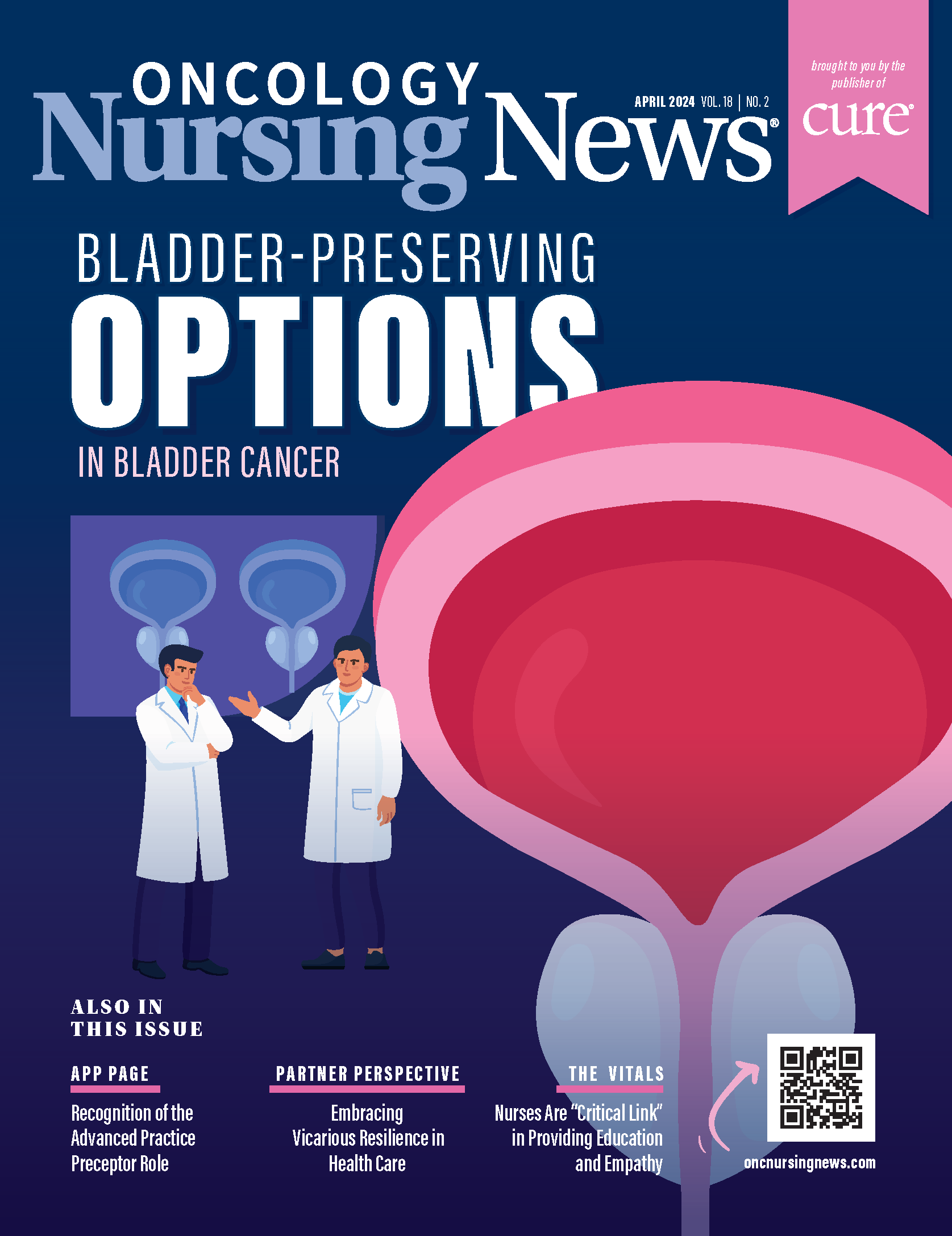The Importance of Quality of Life in Bladder Cancer
In the April 2024 issue of Oncology Nursing News, stories focus on bladder-preserving treatment options in bladder cancer, recent FDA approvals, conference news, and embracing vicarious resilience.
Confident doctor and woman patient discuss test results on pad screen on appointment at oncological center. Qualified physician explain treatment plan to young female sick with cancer using tablet pc: © fizkes - stock.adobe.com

Bladder cancer is a formidable adversary, often necessitating aggressive treatments such as cystectomy, especially in advanced cases. However, the significance of exploring alternative therapy options cannot be overstated. While cystectomy may be effective in removing cancerous cells, it also carries significant physical and emotional burdens for patients, including altered bodily functions and a profound impact on quality of life.
Seeking alternative therapies offers a ray of hope for those reluctant to undergo such invasive procedures or those seeking less disruptive options. These alternatives range from immunotherapy and targeted therapy to chemotherapy and radiation, each with its unique approach to combating cancer. Exploring these alternatives not only expands treatment options but also empowers patients to make informed decisions about their care, ultimately enhancing their overall well-being throughout their cancer journey.
In this April issue of Oncology Nursing News, the cover story focuses on bladder-preserving options in bladder cancer treatment and includes a comprehensive overview of the evolving landscape in this critical area of oncology. Through insightful interviews with experts such as Lindsay Diamond, MSN, AGNP-C, AOCNP, the cover story highlights the importance of exploring alternative therapies to the standard radical cystectomy approach.
“When there is potential for cure on the table, we tend to let that rule our recommendations for patients,” Diamond said in an interview with Oncology Nursing News. “However, not everyone with [muscle-invasive bladder cancer] needs to have their bladder removed.” This sentiment reflects a growing recognition of the need to balance curative intent with preserving patients’ quality of life.
The feature also discusses promising research led by Matthew D. Galsky, MD, at the Icahn School of Medicine at Mount Sinai, aimed at refining patient selection criteria for bladder-preserving therapies. “I feel good…when a patient tells me, ‘I still have my bladder!’ I think we sometimes downplay how much [quality of life] matters to patients,” Diamond added.
Also in this issue, we cover recent FDA approvals for melanoma and pancreatic cancers, highlights from recent oncology conferences, and how to embrace vicarious resilience in an environment that can be full of emotional challenges.
A common theme throughout this issue is the invaluable contributions of oncology nurses, regardless of the disease type. We should aim to recognize and celebrate the dedication, expertise, and compassion of nurses whose tireless efforts continue to make a difference in the lives of patients with cancer.
As always, thank you for reading.




